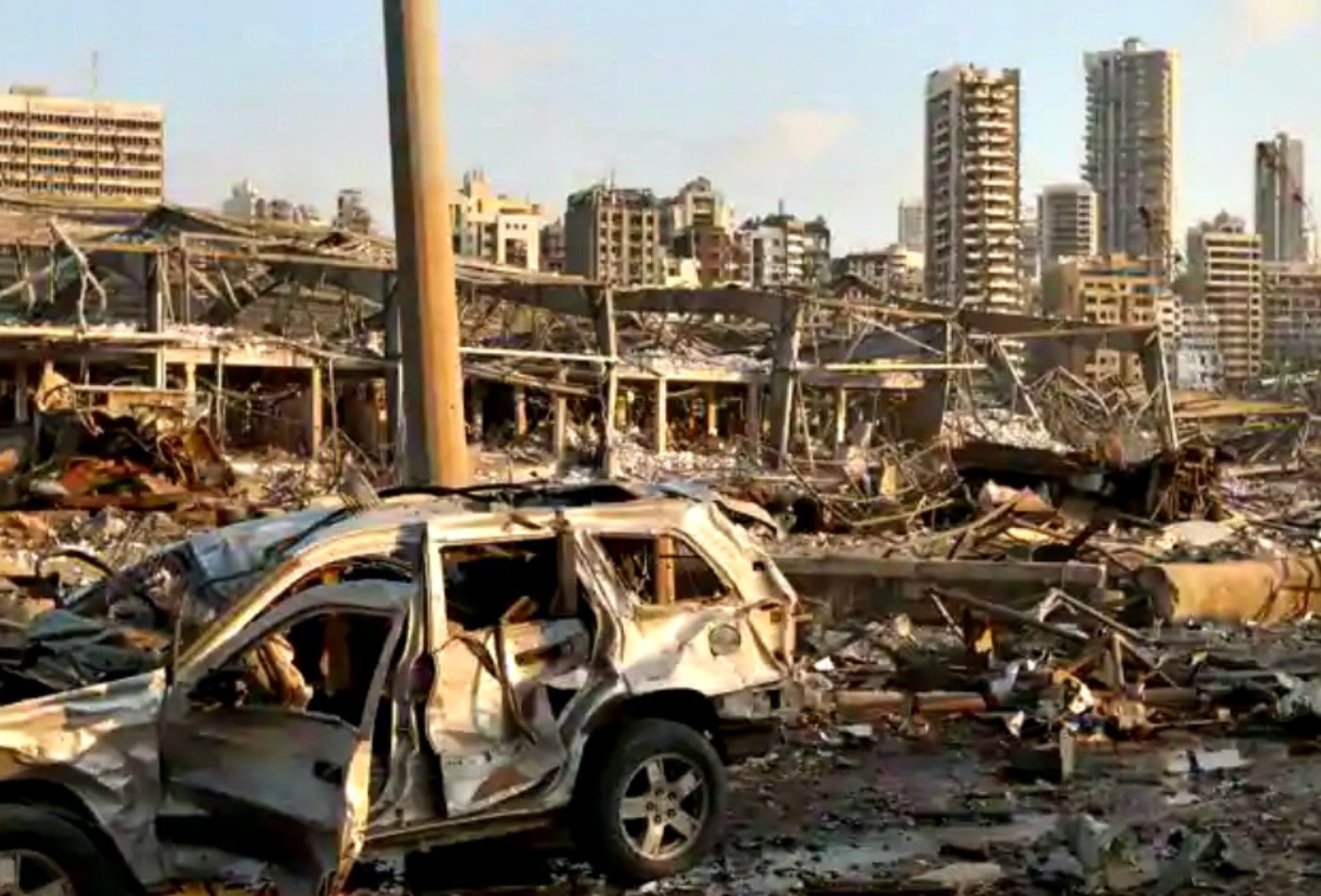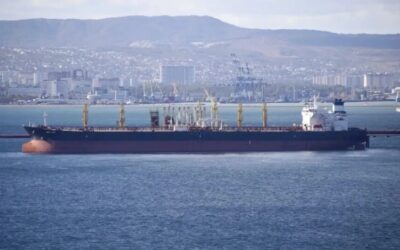INTERNATIONAL RELATIONS
INTERNATIONAL RELATIONS

About 2.750 tonnes of ammonium nitrate were in storage at the port of Beirut that exploded on Tuesday. The explosion caused dozens of deaths, thousands of injuries and unprecedented damage in the Lebanese capital, Prime Minister Hassan Diab said.
“It is unacceptable that a shipment of ammonium nitrate of 2.750 tonnes has been present for six years in a warehouse without taking preventive measures,” Diab told the country’s Supreme Defence Council, which convened an emergency meeting last night.
Ammonium nitrate is a chemical fertilizer, but it is also used to make bombs. “We will not rest until we find those responsible for what happened, hold them accountable” for the deadly disaster, the Lebanese Prime Minister stated.
Also read: Breaking News | Huge explosion at the port of Beirut – Felt in Cyprus – VIDEO
The Supreme Defence Council “recommends” that the government declares a “state of emergency” for two weeks in the city of Beirut. During this period, a committee of senior army officers will be assigned to handle all “security” issues in the Lebanese capital, according to a statement issued after the meeting of the Supreme Defence Council. The country’s cabinet will hold an extraordinary meeting later today.
Regarding the rumors that circulated after the explosion regarding an Israeli rocket attack at the port of Beirut, the television of the Israeli parliament (Knesset), broadcast that “Israel has nothing to do with the explosions that took place today (yesterday) in Lebanon.”
Foreign Minister Gabi Ashkenazi, speaking on TV channel N12, said the blast was most likely due to an accident that started with a fire.
Lebanon’s General Security Chief, Abbas Ibrahim, when asked by television reporters as he was heading to the scene, said: “It appears that there is a warehouse containing material that was confiscated years ago, and it appears it was highly explosive material.”
Meanwhile, US President Donald Trump said the deadly blasts that rocked the Lebanese capital on Tuesday “looked like a terrible attack”, without elaborating.
The White House resident made this comment at the beginning of his daily press conference on dealing with the crisis caused by the coronavirus pandemic.
The US president spoke of a “bomb of some kind”, citing estimates by “officials”.
“The United States is ready to offer assistance to Lebanon,” Trump said. “We will be there to help. It looks like a terrible attack.” According to Lebanese Prime Minister, Hassan Diab, 2.750 tons of ammonium nitrate exploded inside a warehouse at the port of Beirut. Lebanese Health Minister, Hamad Hassan, said at least 78 people had been killed and nearly 4.000 were injured in the blasts.
Ammonium Nitrate (NH4NO3) is the main ingredient in ANFO, a popular industrial explosive used in improvised explosive devices. Many countries gradually ban its use in consumer applications due to concerns about abuse.
Ammonium nitrate is not explosive in the form commonly sold. However, with its use explosive mixtures can be easily made with various properties, especially when combined with primary explosives such as azides or with fuels such as aluminum powder or fuel oil.
The explosion at the Port of Beirut brought to the fore the case that took place on Cypriot soil, when a 26-year-old Lebanese man was arrested by the Cypriot authorities for possession of two tons of ammonia nitrate and was a member of Lebanese Hezbollah. According to reports at the time, the 26-year-old was preparing a strike against Israeli targets, either in Cyprus or abroad.
According to international media, large quantities of ammonia nitrate arrived in Beirut in 2013, when the ship carrying them, named M / V Rhosus (sailing from Georgia to Mozambique), was seized.
The case was never resolved and the ship’s cargo, 2.750 tonnes of ammonium nitrate, was unloaded and stored at a nearby warehouse at the Port.
Also read: LIVE | Widespread Catastrophe at the Port of Beirut – Photos & VIDEO
Russia | Volodymyr Zelensky is wanted
Moscow included the Ukrainian President on its wanted list, clarifying that the warrant for his arrest stems from an article of the…
Russia | ‘Putin’s Shadow Fleet’ in the Laconic Gulf
‘Putin’s shadow fleet’ is the title of an extensive report by the Süddeutsche Zeitung, referring to the transfer of Russian oil to vessels…
Cyprus Issue | Russia’s will to help UN efforts
Russia’s willingness to support the efforts of the UN Secretary General’s Personal Envoy for Cyprus, Maria Ángela Holguín Cuéjar, to resume…
STORE project | AI-assisted optronics to increase combat perception capabilities
The European Commission signed the Grant Agreement for the launch of the STORE (Shared daTabase for Optronics image Recognition and…
The FEDERATES project | Developing Europe’s first MSaas ecosystem
On 21 March 2024, the first Italian Workshop on the FEDERATES project of the European Defence Fund was held.
Cyprus | Jordan mission to reinforce aerial firefighting means
Two firefighting helicopters with their 18-member crew arrived in Cyprus from Jordan to support the Republic of Cyprus’ aerial firefighting.
Saint George | The Patron Saint of the Army and the Infantry
Saint George is one of the most prominent Saints of the Christian religion, not only of the Eastern Orthodox Church, but also of all…
QinetiQ | UK’s first Manned – Unmanned aircraft Teaming
QinetiQ has successfully trialled the UK’s first Manned-Unmanned Teaming (MUM-T) demonstration between a crewed aircraft and a drone.
Lambda Automata | Investment in UAV technology
Greek Lambda Automata has recently announced a major development that will strengthen its position in the defence industry.



















0 Comments